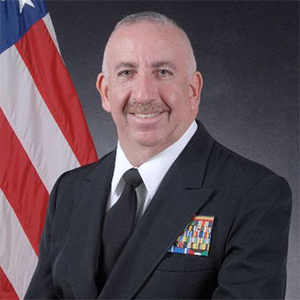Rabbi Irving Elson
As is the tradition on Veterans Day, I extend my thanks to all military veterans for their service to our country. On this Veterans Day, I am especially thankful to one unknown American veteran, a soldier from the 6th Armored Division of the Third Army who fought his way from the beaches of Normandy to what the U.S. Holocaust Memorial Museum describes as “a wooded area on the northern slopes of the Ettersberg, a hill north of the city of Weimar. There, on April 11, 1945, the soldier encountered the horrors of the Holocaust as he and the other men in his unit liberated more than 21,000 people in the Buchenwald concentration camp, among them Sol Chase, a young man from Poland. In my mind’s eye, the soldier offered Sol water from his canteen and maybe a couple of cans of K-rations from the stash of food he carried. In return, perhaps Sol hugged him in gratitude, embracing the soldier’s muscular frame with his arms, bony and weak from months of malnutrition.
Although I don’t know this veteran, he symbolizes every U.S. Army soldier who liberated Europe’s concentration camps during the Shoah (originally a biblical term meaning “calamity” or “catastrophe,” it became the Hebrew word for the Holocaust). If I did know him, I would tell him how his valor and his compassion not only saved Sol on that fateful day, but also inspired his deep love of this country and its military, a love and commitment that shaped the rest of his life. That life, the one Sol and his wife, Fay, built in America was beautifully reflected recently when his children, Irv and Nancy Chase and their family, donated and dedicated a sefer Torah in memory of the elder Chases to Naval Support Facility Thurmont, more commonly known as Camp David.
Over the course of several days and together with leaders of JWB Jewish Chaplains Council® and JCC Association of North America, the Chase family celebrated, honored, and remembered that “everyman” soldier who liberated Irv’s father from Buchenwald. Kicking off the series of events was a visit to the United States Naval Academy, where a magnificent parade showcased military precision after which we joyfully celebrated our Shabbat traditions with Jewish midshipmen. Two days later, we all were incredibly moved as Irv and Nancy laid a wreath at the Tomb of the Unknown Soldier in Arlington National Cemetery, recognizing and honoring the unidentified service members who gave their lives for our country and now, as the tomb’s inscription states, are “known but to God.” Following our time at the cemetery, we visited Mount Vernon, home of George Washington, whose commitment to the free exercise of religion is a pillar on which this country was built.
Our time in and around the nation’s capital culminated in our visit to Camp David, where Irv and Nancy recounted their father’s journey that—through the beneficence of this great country and in a single generation—took the family from the gates of Buchenwald to the doors of Naval Support Facility Thurmont and its interfaith Evergreen Chapel. We watched as the Chases carried a sacred Torah scroll through the chapel doors, where a beautiful new ark awaited to house it so that all who visit the site—from presidents and politicians to diplomats and heads of state—can learn from the story of the Jewish people and hold us up as a symbol of this country’s devotion to be a home for all, regardless of religious faith.
This commitment—first expressed by George Washington and since demonstrated by generations of America’s military personnel—is the precise reason I wish I knew the young soldier who liberated Sol Chase and others like him. If that knowledge was possible, especially on this Veterans Day, I would offer these words of gratitude and thanks: “Well done, good and faithful servant. Your bravery and your service will never be forgotten.”
 Rabbi Irving A. Elson is a vice president and the director of JWB Jewish Chaplains Council® at JCC Association of North America.
Rabbi Irving A. Elson is a vice president and the director of JWB Jewish Chaplains Council® at JCC Association of North America.